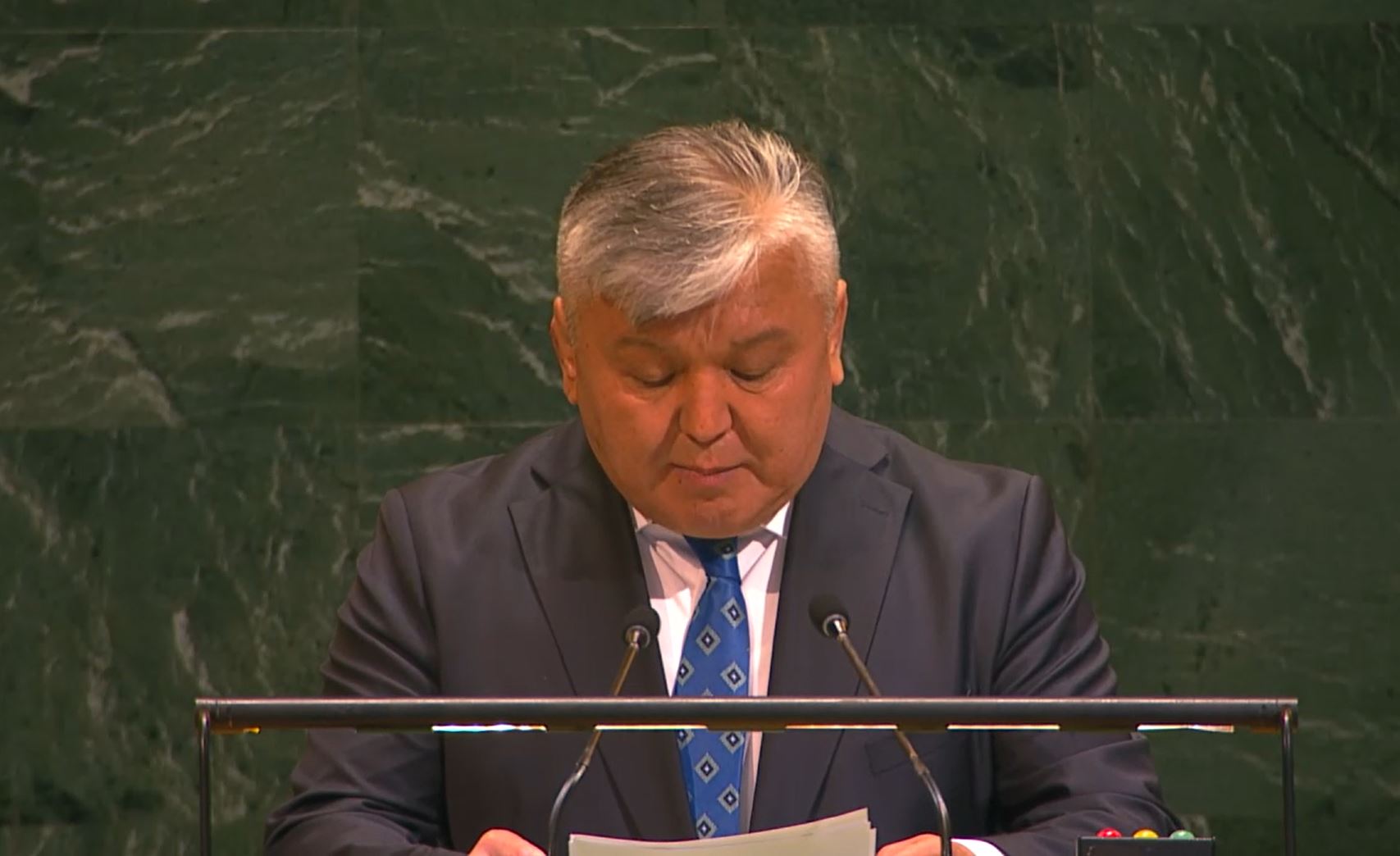Statement of the Member of the Board for Energy and Infrastructure of the Eurasian Economic Commission Arzybek Kozhoshev
21.07.2025It is a great honor on behalf of the Eurasian Economic Commission — the permanent regulatory body of the Eurasian Economic Union (EAEU), which unites Armenia, Belarus, Kazakhstan, Kyrgyzstan, and Russia — to report on the progress made in studying the impact of Eurasian economic integration on the achievement of the United Nations Sustainable Development Goals (SDGs) by the EAEU member states.
Today, the EAEU is a dynamically developing economic integration entity, within which the free movement of goods, services, capital, and labor is ensured, and unified (coordinated) policies are applied in certain areas of economic cooperation.
The EAEU represents a single market of over 185 million consumers. The combined GDP of the member states exceeds 2 trillion US dollars. In 2024, its growth amounted to 4.4%. For the second consecutive year, the economic growth rate within the Union has surpassed the global average (3.2%).
The goals and directions of the Union’s integration development largely coincide with the objectives and tasks of the 2030 Agenda. At the Eurasian Intergovernmental Forum, we are presenting the second report on the contribution of economic integration to achieving the SDGs. It reflects the main areas of economic cooperation within the EAEU, showing that all of them correlate with SDG achievement, and the dynamics of these processes are positive.
Regional economic integration is not only an instrument for sustainable economic growth but also serves as an additional factor in achieving the SDGs by the Union’s countries.
The key instrument for achieving the SDGs within the EAEU framework is the Union law. For example, the EAEU Treaty broadly covers the 2030 Agenda.
Attention to sustainable development of economic cooperation among member states is also emphasized in the Strategy for the Development of Eurasian Economic Integration until 2025 and its successor, the Declaration “The Eurasian Economic Path,” which defines the development of our integration processes until 2030 and through 2045.
The analysis of the impact of strategic measures and mechanisms on SDG achievement is a “novelty” of our second report.
The report states that integration, as one of the factors of economic development, positively affects the well-being of the population.
The integration contribution is significant for those SDGs whose achievement largely depends on the economic component of cooperation. These primarily include SDG 1, SDG 2, SDG 3, SDG 8, SDG 9, SDG 10, and SDG 17. The scope of SDG 8 allows it to be considered a driver for achieving other SDGs, with its success depending on a favorable economic situation and the population’s access to employment opportunities.
In the member states, GDP per capita grew in 2023 compared to 2019 — by 44.4% in Armenia, 5.2% in Belarus, 5.9% in Kazakhstan, 11.7% in Kyrgyzstan, and 6.9% in Russia.
The unemployment rate in the Union is lower than in many of our partners (3.5% in 2023).
The trend toward aligning economic development among member states has solidified, despite differences in the scale of their economies and the impact of external factors.
Member states undertake systemic measures to strengthen food security — increasing food production, applying efficient farming methods, implementing innovative technologies, and developing infrastructure. A high level of food security has been achieved — 93%. The Union meets domestic demand for grain, key types of meat and dairy products, vegetable oils, sugar, potatoes, chicken eggs, and other products.
Member states contribute significantly to global food security. In exports of certain goods, the Union holds leading positions: first place in wheat, frozen fish, and flax seeds; second place in wheat flour, sunflower and rapeseed oils; third place in barley.
Priority areas of EAEU development — infrastructure and industrial development, including transport infrastructure, promotion of industrialization, modernization of production, and access to financial services — closely correlate with SDG 9.
The functioning of a unified market for construction services, application of technical regulations in construction and transport, and municipalities’ capabilities in public procurement are subjects of integration cooperation linked to achieving SDG 11.
A unified market for pharmaceuticals, application of sanitary, veterinary-sanitary, and quarantine phytosanitary measures, as well as joint measures to counteract the effects of the COVID-19 pandemic, contribute to achieving SDG 3.
A single legal framework for the free circulation of products safe for human, plant, and animal life and health has been established. The Union is working within the climate agenda and has established common rules for the identification labeling of certain types of goods. This corresponds to the goals of SDG 6 and SDG 13.
Long-term mutually beneficial cooperation in the energy sector — coordinated energy policy, formation of common energy resource markets, efficient use of fuel and energy complex potential, and provision of national economies with key energy resources — correlates with achieving SDG 7.
Consumer protection policies promote the development of competitive markets, formation of an inclusive society, and improvement of the population’s living standards, which supports SDG 12.
The Union’s international activities and mutually beneficial trade and economic cooperation with partners have made us an economic attraction pole on the international stage, which highly correlates with SDG 17.
The combined GDP of the Union’s partners exceeds 70 trillion US dollars (at purchasing power parity). The population of these countries is 4.3 billion people (more than half of the world’s population).
We will continue to analyze the impact of Eurasian economic integration on the achievement of the SDGs in the EAEU region and will share the results with you.
Thank you for your attention.
